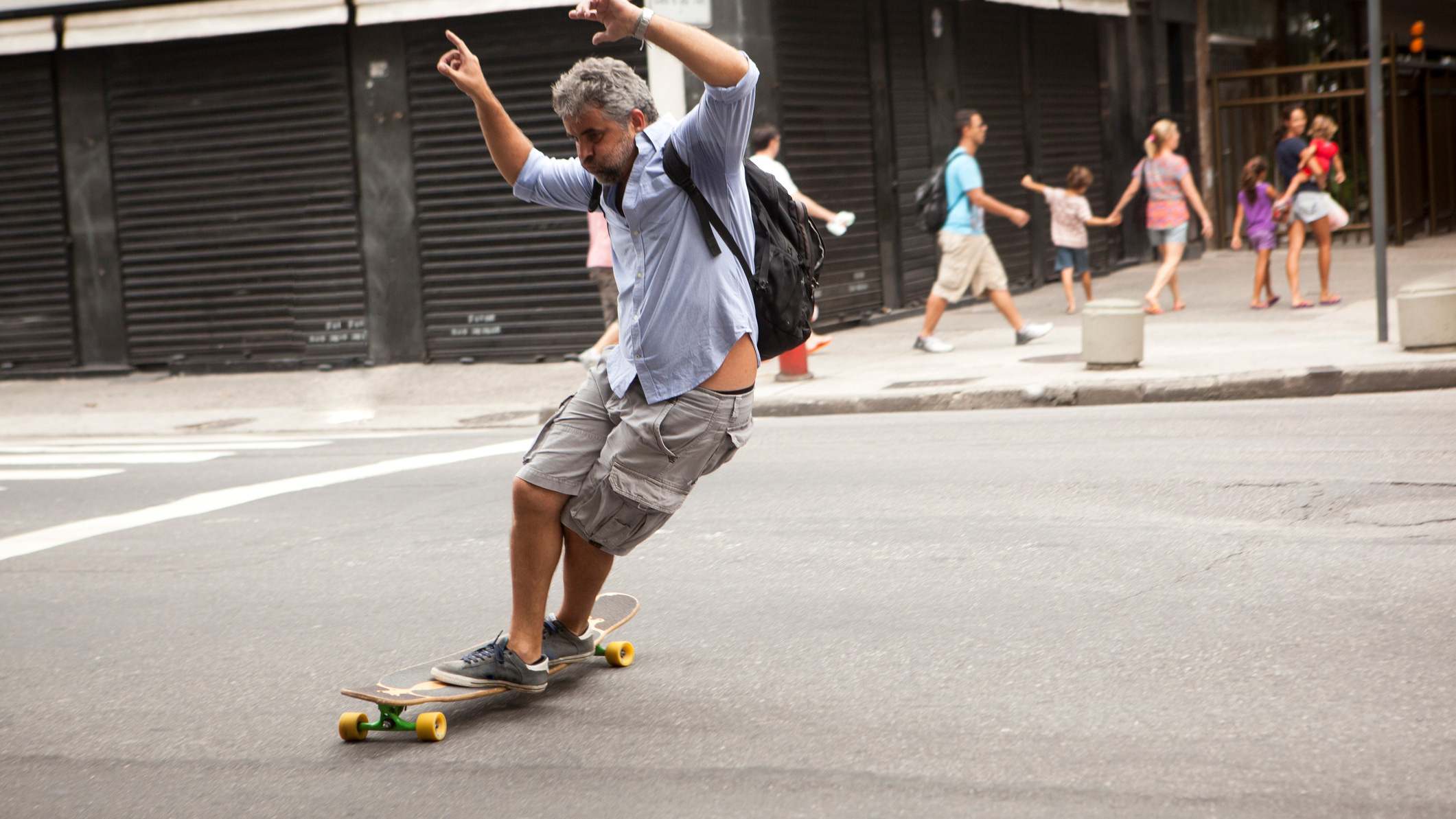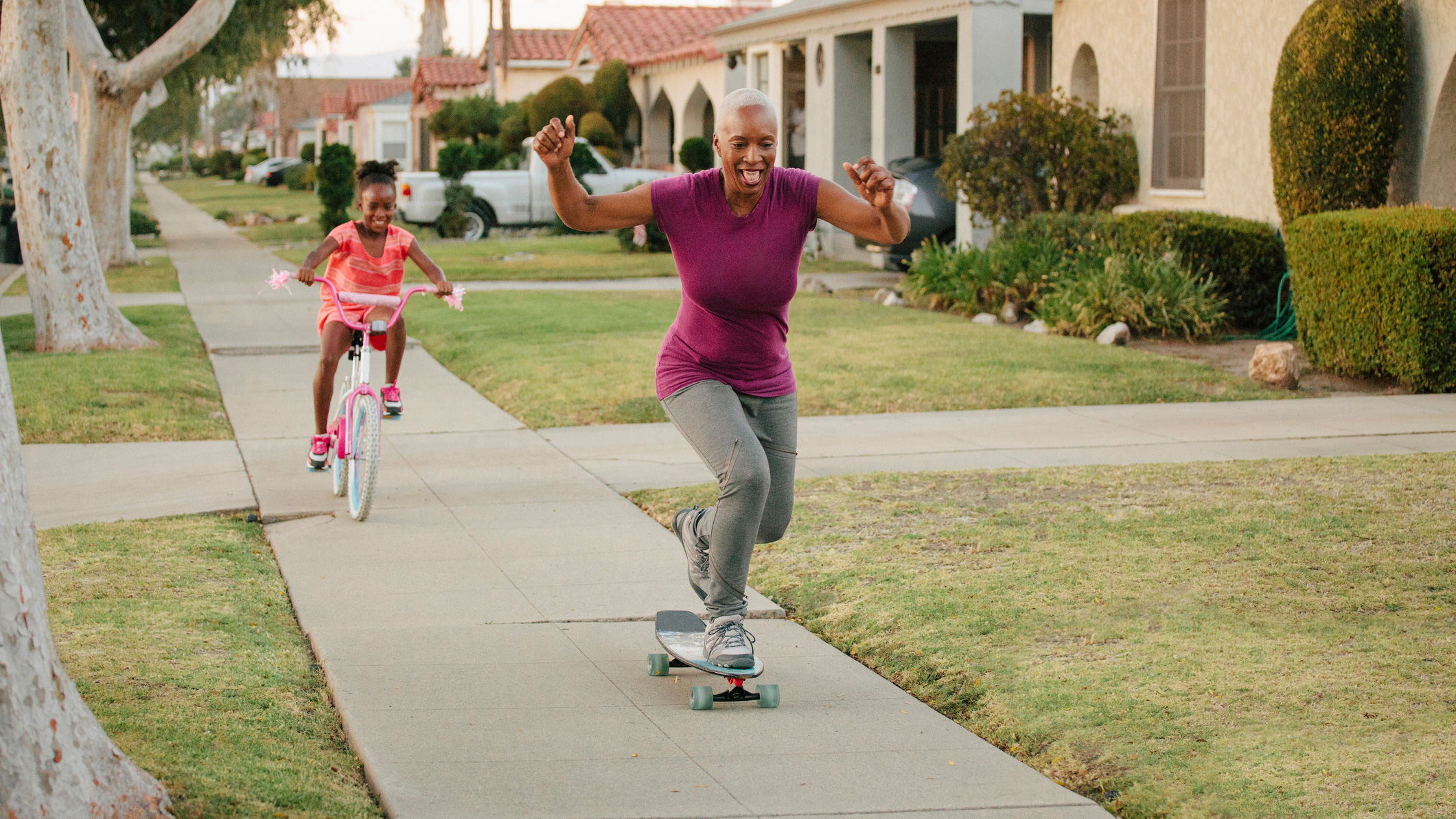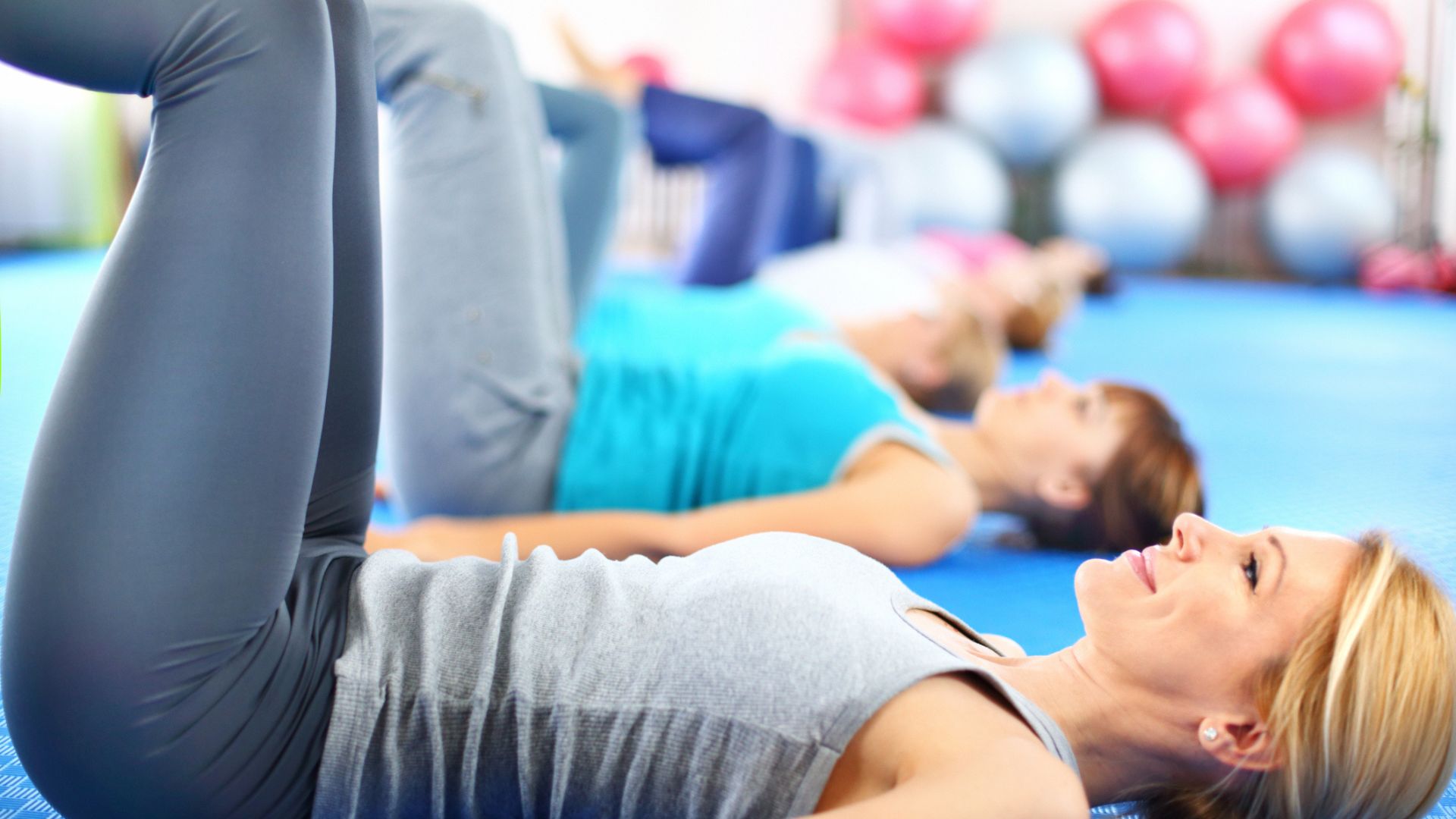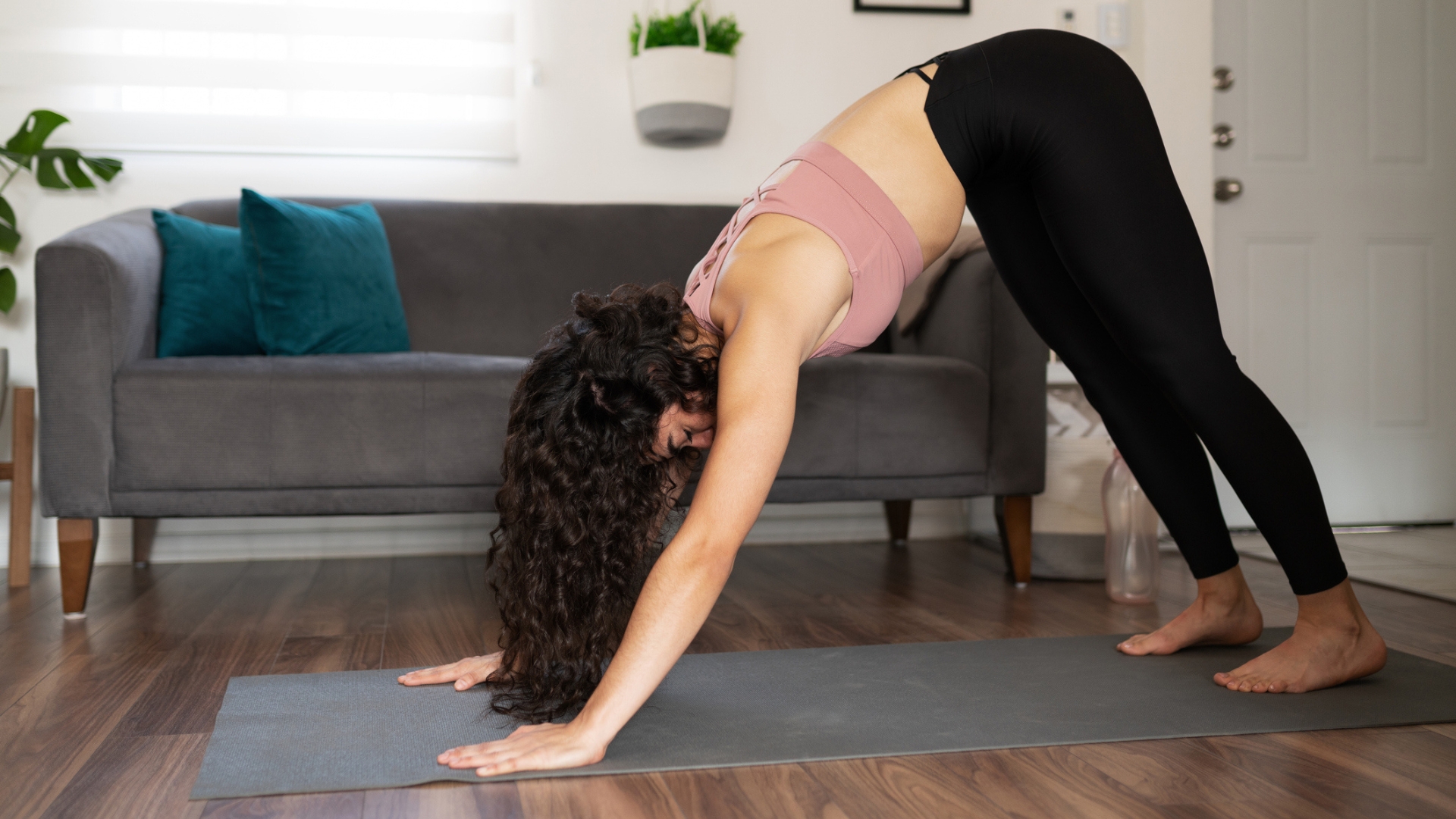Beat the January Blues with skateboarding, even in middle age
Mid-life skateboarders are less likely to suffer from depression and have a different outlook on life, according to a new study


Are you over 40, and resolved to start a new hobby this year? Maybe you're looking to take up some new fitness-related pursuit, be it dancing, yoga, kickboxing, or even just getting the steps in on your new cross trainer.
But whether you've bought one of the best elliptical machines to park in front of Netflix, or you're still dithering about what you could choose to try this year, here's something that lots more middle-aged people should try: skateboarding.
Yes, skateboarding has a bit of a reputation for creating more injuries than it does to get you fit, but it's a fun outdoor pursuit that requires plenty of core and leg strength, helping with your balance, hand-eye co-ordination and proprioception. More importantly (especially for the dismal January season) it's a great antidote for the symptoms of depression, according to a new study.

The researcher, the University of Exeter's Paul O'Conner, interviewed mid-life skateboarders to identify changing motivations for taking up and continuing to practice skateboarding. Those who skate in mid-life find emotional wellbeing, along with a sense of joy, community, and a spiritual outlet.
Speaking to the Evening Standard, O'Connor said: “For those I spoke to, skateboarding was more than about looking after physical health. Indeed, the notion of sport was regarded with caution. To them, skateboarding seemed to mean more.
“On at least two occasions when I asked informants to try to explain what skateboarding meant to them, I was confronted with grown men fighting back tears, literally lost for words in grasping to communicate the importance and gravitas of their pastime.”
It's theorised that because failure is ingrained into skateboarding as a natural part of the sport, it teaches people to accept failure as part of life's general learning processes. After all, it takes months of practice, and many failed attempts, before landing your first kickflip, just like it takes practice and time served to achieve anything in life. That's a valuable lesson all of us could learn; to accept our failures as part of growth.
Get the Fit&Well Newsletter
Start your week with achievable workout ideas, health tips and wellbeing advice in your inbox.
It's also possibly the outdoor and extreme nature of the sport, providing that rush of endorphins to keep depression at bay. If you're looking for an outdoor-based sport with significantly less risk of injury, consider picking up a pair of the best trail running shoes.
Matt Evans is an experienced health and fitness journalist and is currently Fitness and Wellbeing Editor at TechRadar, covering all things exercise and nutrition on Fit&Well's tech-focused sister site. Matt originally discovered exercise through martial arts: he holds a black belt in Karate and remains a keen runner, gym-goer, and infrequent yogi. His top fitness tip? Stretch.
-
 A Pilates instructor says this is the beginner-friendly core exercise everyone should try
A Pilates instructor says this is the beginner-friendly core exercise everyone should tryForget crunches, this is the perfect foundation move
By Alice Porter Published
-
 Prevent poor posture and release tension from sitting down with these four simple stretches from a yoga instructor
Prevent poor posture and release tension from sitting down with these four simple stretches from a yoga instructorThe daily poses he swears by, no matter what
By Alice Porter Published